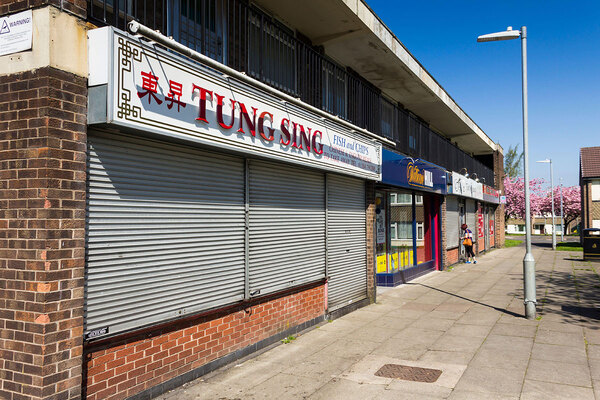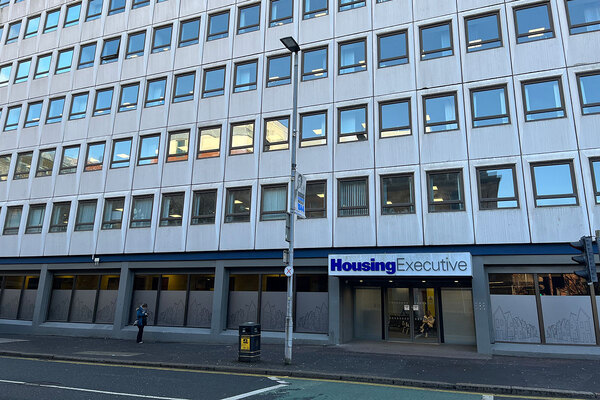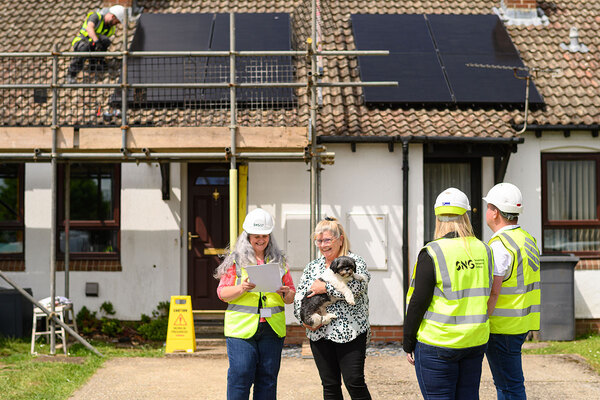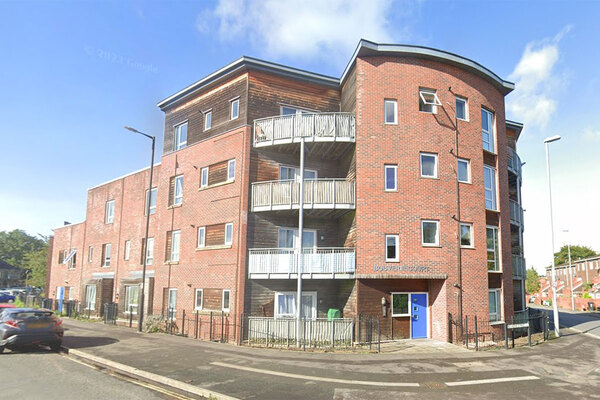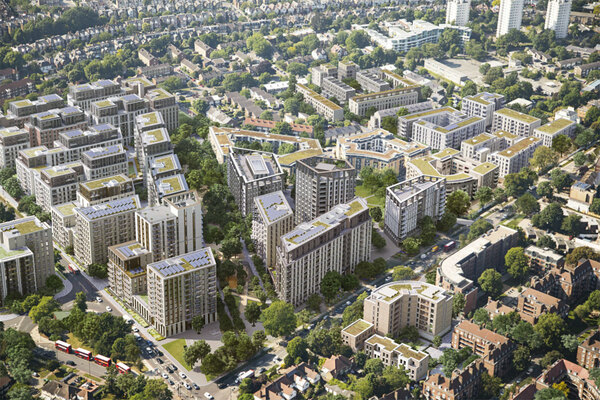You are viewing 1 of your 1 free articles
Medical charity raises concerns over expanded permitted development rights
A medical charity and an academic researcher have raised concerns over the government’s recent expansion of permitted development rights (PDR).
Medact said it had encountered seriously poor housing conditions created via current PDR rules and warned that the new rights could lead to a “further deterioration” in standards.
The health organisation has visited a number of permitted development blocks in Harrow, north-west London with researchers from University College London and interviewed residents.
Jordi López Botey, economic justice campaigns and programme lead at Medact, told Inside Housing: “The gaps in current regulations around permitted developments create an opportunity within which rogue developers and exploitative landlords seek to turn commercial buildings into a profitable business at the cost of tenants’ health, with relatively few restrictions or protections in place.”
In February, housing secretary Michael Gove announced that PDR would be expanded to cover shops and offices of any size. The government would also cut the need for shops to have been empty for a period of time before they can be converted to housing.
Mr López Botey continued: “The proposal to allow the conversion of certain classes of building without requiring a planning application process raises serious concerns about this leading to further deterioration of standards. Additionally, this approach to housing supply also removes the democratic and local scrutiny on how homes are developed.”
Dr Isobel Braithwaite, public health registrar and housing and health researcher at University College London, who worked with Medact in Harrow, said: “The experiences of the tenants we have worked with through Medact’s work in some permitted development blocks are shocking, and sadly theirs are not isolated experiences.
“The lack of basic scrutiny and protections to ensure that new homes created via PDR meet basic standards on issues such as lack of space, ventilation/condensation, natural light, overheating and fire risks raise very serious health concerns.
“More affordable housing is urgently needed, but it is also essential that housing is healthy and safe, and the roll-out of PDR legislation has not fundamentally addressed the housing affordability crisis.
“Yet the associated roll-back of standards and protections has left thousands of often vulnerable people living in unsafe and/or unhealthy conditions, many paying high rents for the privilege.”
Last month, a report by UCL and the Town and Country Planning Association argued that the current PDR regime is "insufficient to protect people from poor quality housing".
Jackson Caines, housing campaigns and community organiser at Harrow Law Centre, said: "More unsuitable homes converted from offices and shops are not the answer to the housing crisis.
“Harrow Law Centre and Medact have observed first-hand the sort of problems that arise from office-to-residential conversions in Harrow. Tenants in these properties typically live in small homes with frequent, often serious, disrepair issues affecting individual units and communal areas.
“In our experience, such conversions often attract unscrupulous landlords who provide a poor service to tenants. An expansion of permitted development rights will mean more misery for tenants, and is no substitute for building the next generation of safe, decent council homes that we desperately need.”
PDR rules have been in place for around a decade, allowing large commercial buildings to be turned into homes without planning permission. From 2015 to 2022, 73,575 new houses were converted from offices under PDR.
Unlike most developments, where councils ensure a certain percentage of affordable housing is provided, there is no requirement for affordable homes to be provided via office-to-residential conversions.
Mr López Botey added: “Ultimately, the provision of homes should not rely on private developers and easing of regulations. The provision of affordable and quality homes need to be delivered by means of investment in social homes that are democratically owned and subject to local scrutiny and control.
"Not only would this address the urgent need for affordable homes but address the serious health inequalities created by insecure and poor quality housing.”
Kate Henderson, chief executive of the National Housing Federation, said: “Proposals to expand commercial to residential conversations are unlikely to create the quantity and quality of homes needed to address this crisis.
"If government presses ahead with continued permitted development, then it is essential that regulatory safeguards are in place to ensure the safety, quality, accessibility, and connectivity of these converted properties.
"In addition, local authorities should have the opportunity to secure affordable housing and other infrastructure contributions from those developing these properties."
A Department for Levelling Up, Housing and Communities spokesperson said: "Homes built through permitted development rights must meet national space standards and comply with building safety rules, making sure we deliver high-quality homes that local communities want and need.
"At the same time as increasing the quantity of homes we are driving up quality, with the number of non-decent homes down by two million since 2010.
"Our changes will unlock thousands of new homes across the country and ensure neglected buildings are not sat gathering dust and brought back into use."
Sign up for our care and support newsletter
Already have an account? Click here to manage your newsletters

